The YK Pao Middle School’s Chinese Department recently concluded the annual Poetry Competition. Contestants displayed the beauty of classical poetry through both written selections and stage performances, igniting a wave of poetry enthusiasm across campus.
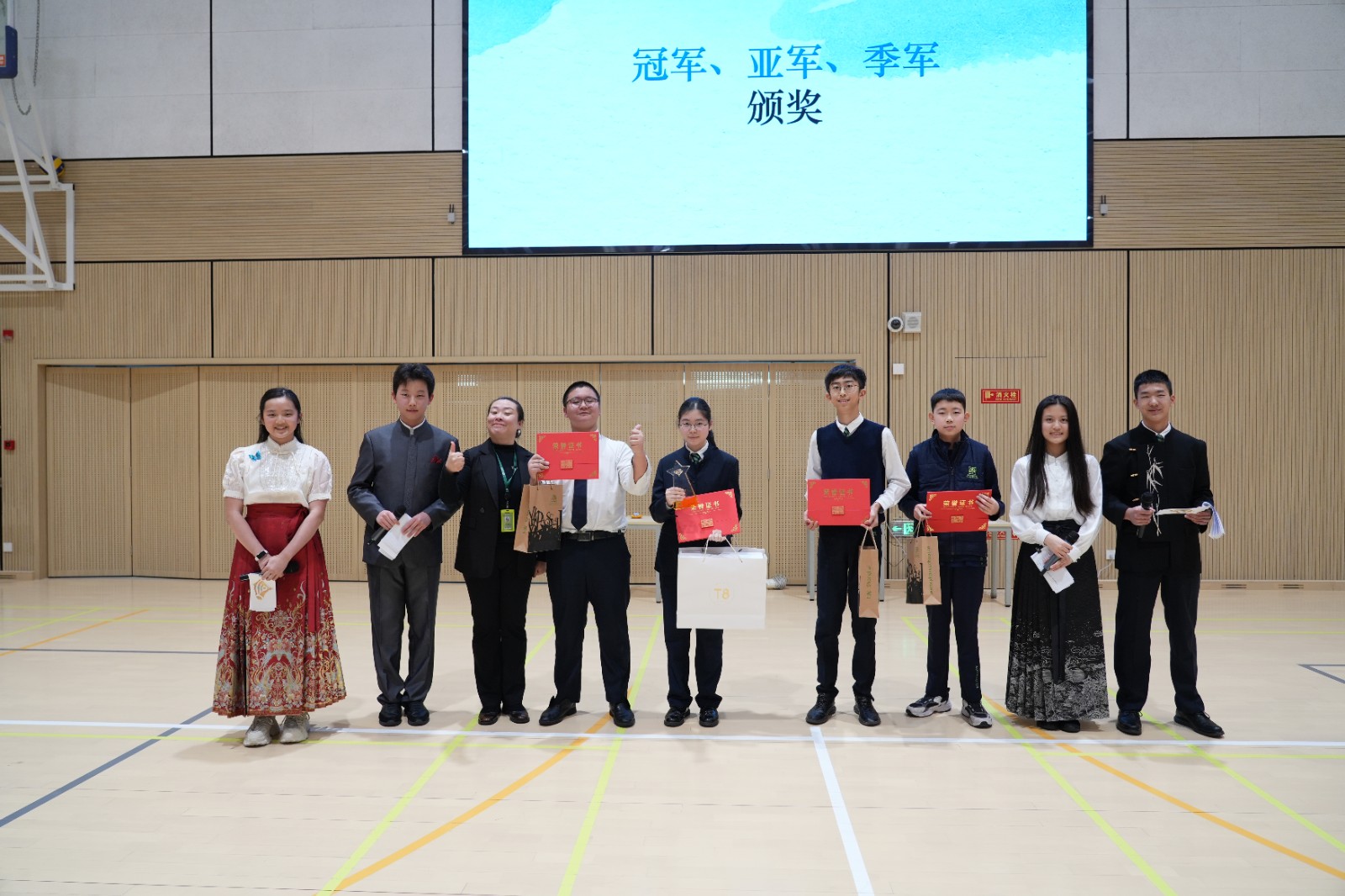
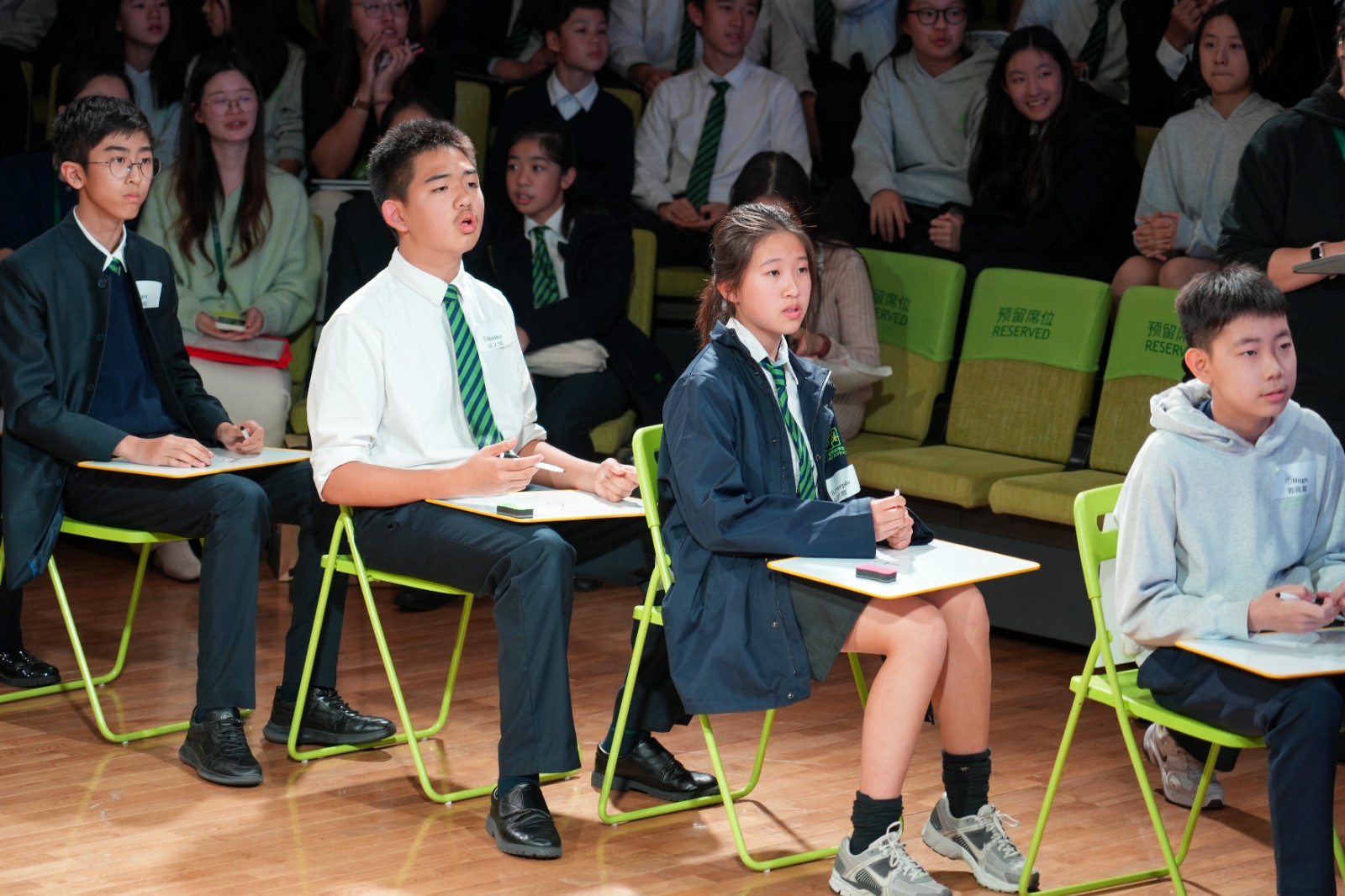
Your focus and courage illuminated the poetry competition. A special thanks to the teachers and staff whose support made this event possible. May you continue to find wisdom in poetry and let this rich cultural heritage guide your growth.
-- Ada Wang
Middle School Principal
The Middle School PaoPress team reported this their event in their own writing.
Introducing the Competition
While we appreciate and memorize poetry, it often feels distant. The annual Chinese Poetry Competition is not just a stage: it’s an opportunity to connect the past and present, to forge friendships, and to come together through poetry. Beyond those who participated in the competition, Year 6 students made posters, while Year 7 students made the introductory videos, and Year 8 produced art pieces incorporating elements of Chinese poetry. This collective effort enabled us to experience the beauty of five thousand years of culture and three thousand years of poetic tradition.
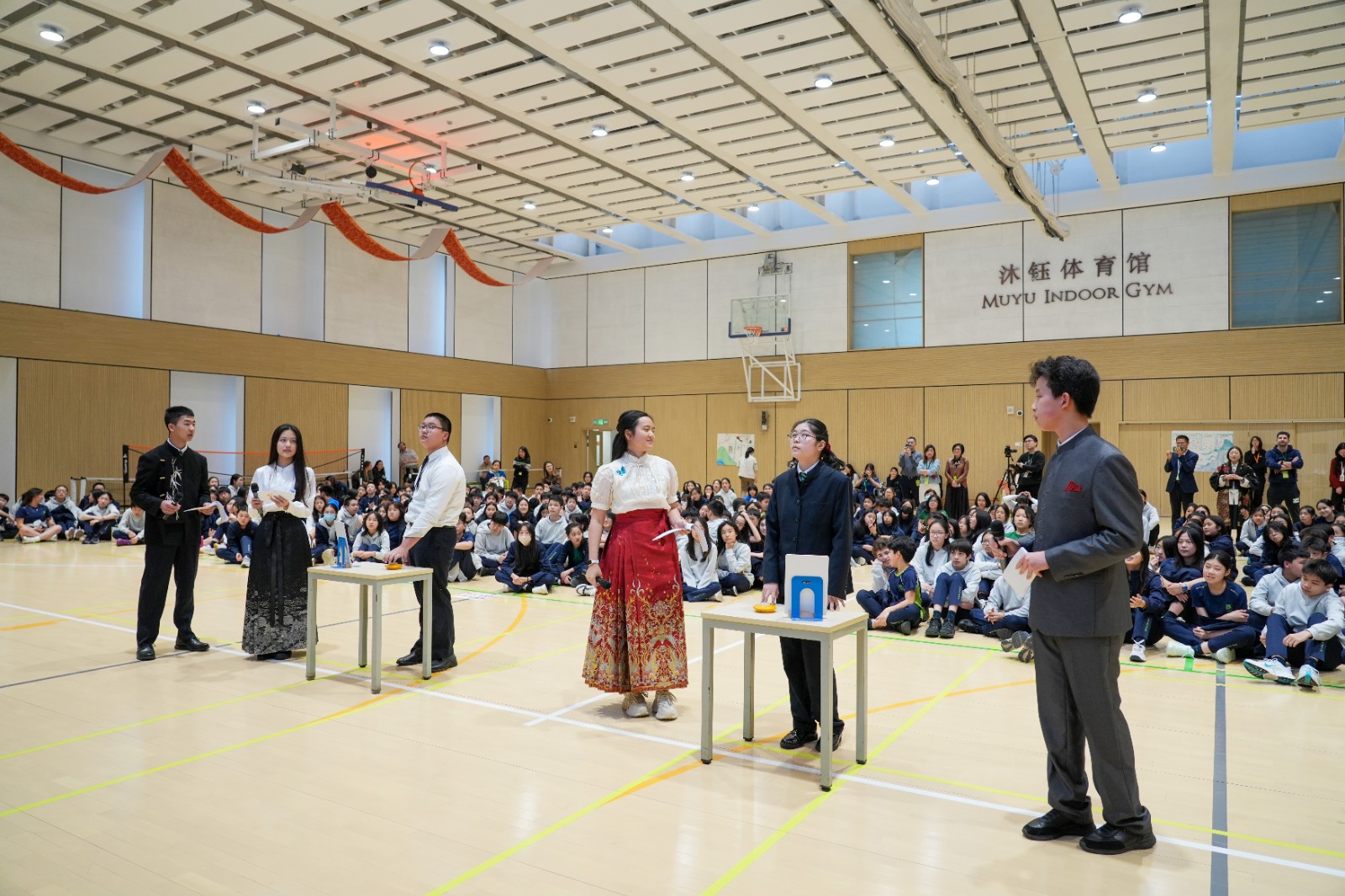
Champion and Runner-up Interview
Last year, Annie, then in Year 7, participated in the preliminary selection, but she failed to enter the final competition. Encouraged by her friend Amanda Hu, a two-time champion, she began her preparation last summer.
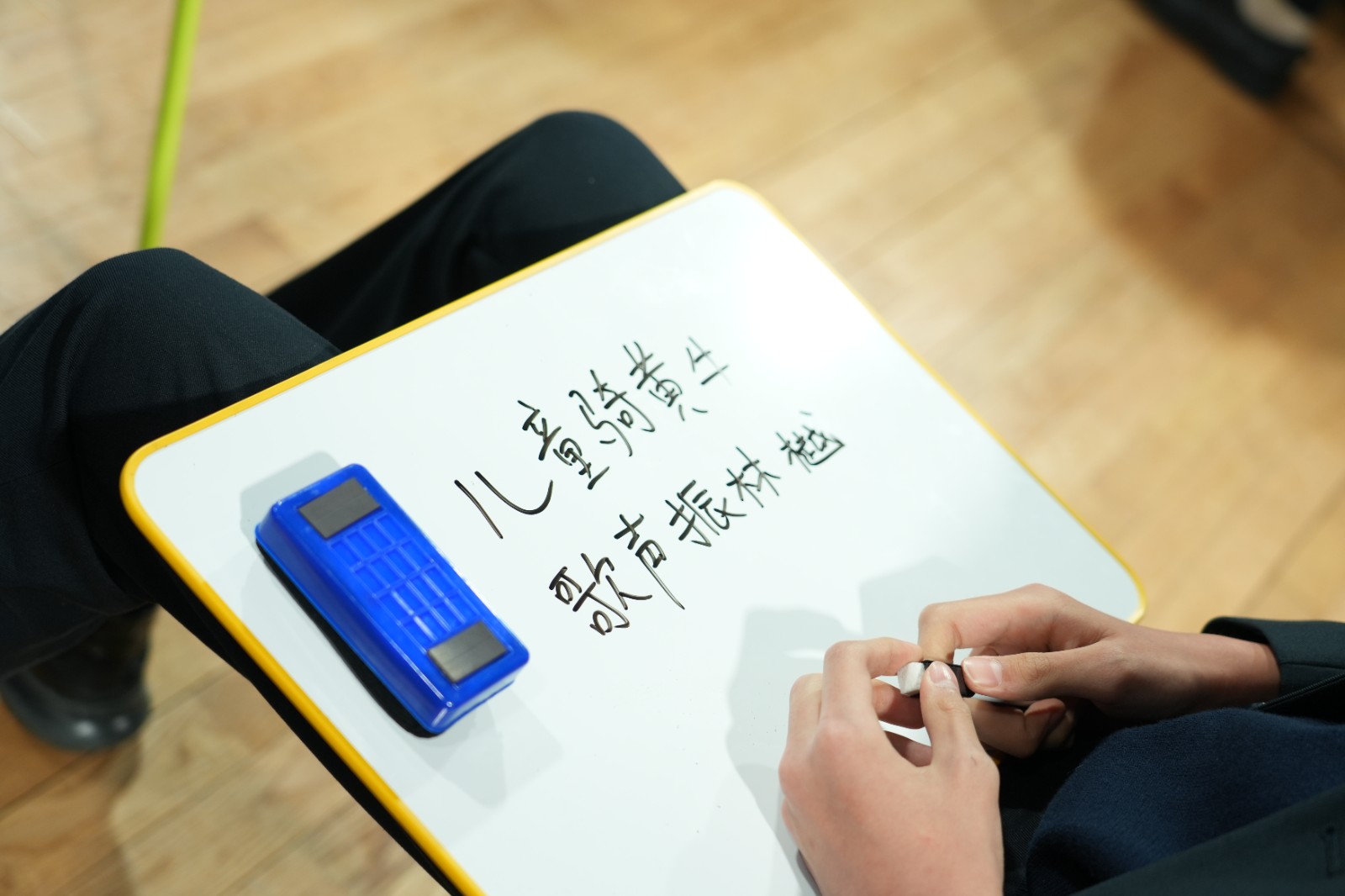
In the final competition, Annie took her mind off winning to focus on answering the questions instead. She didn’t find the first few questions very difficult, and won before she knew. "It took me a moment to realize what had happened,” she said. She compare her feeling to a Chinese poem: “Where the hills and streams end and there seems no road beyond, I amidst shading willows and blooming flowers another village appears.”
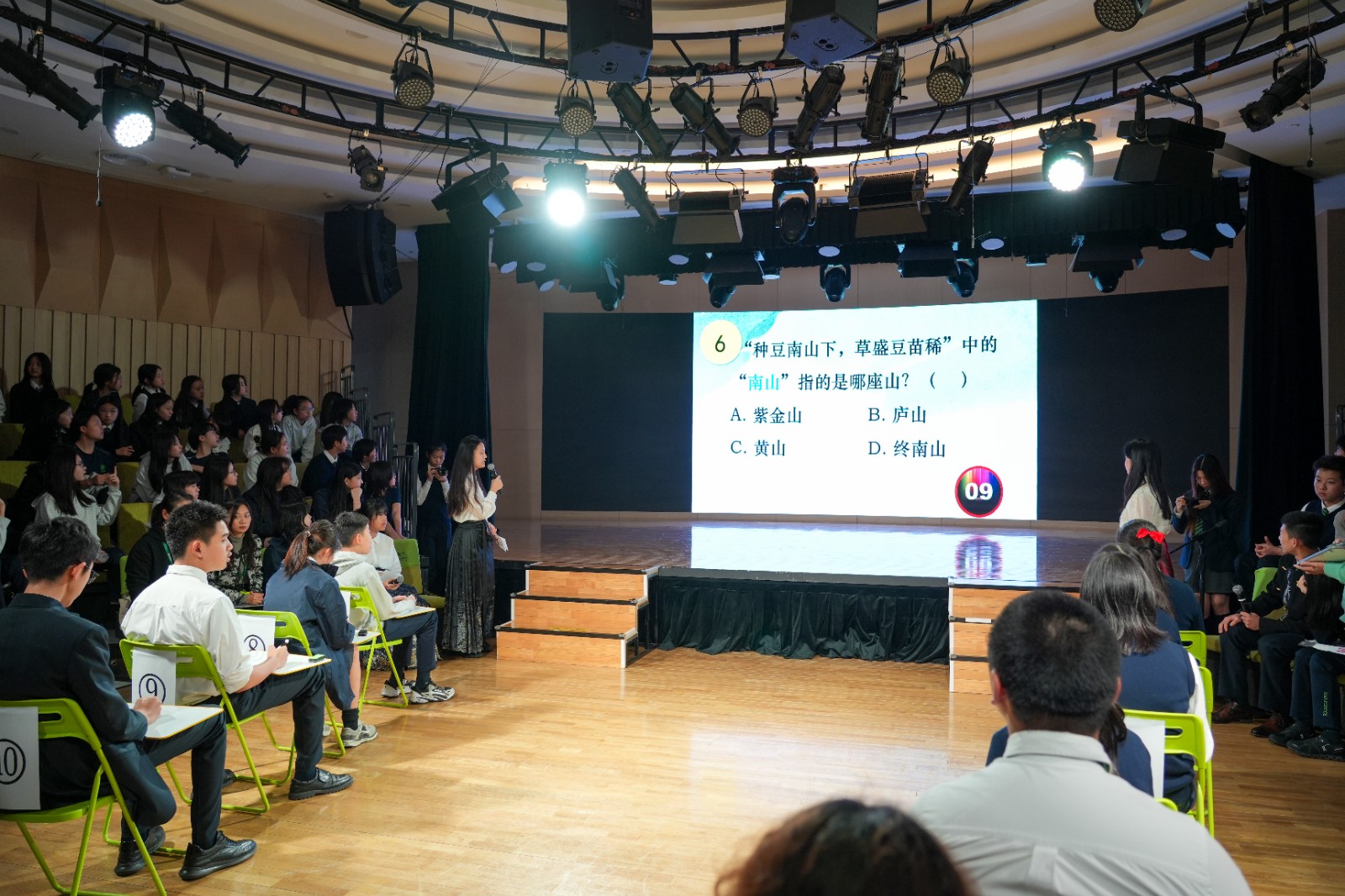
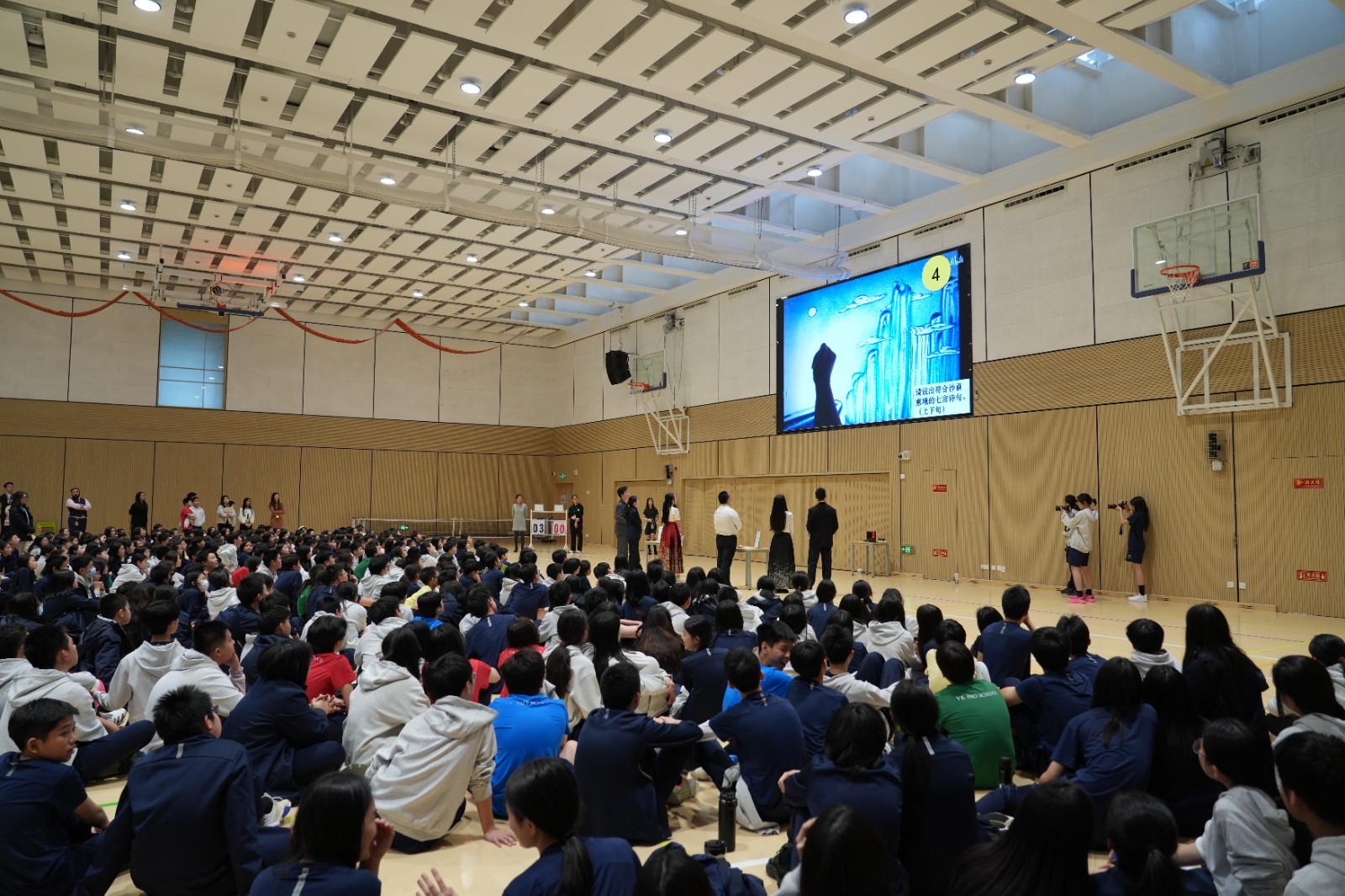
After the competition, Annie expressed her gratitude to her classmates and teachers for their endless support. Although the competition is over, she will continue deepening her understanding of poetry, not just through memorization, but by truly understanding the meanings and emotions found within the poems. To her, furthering her understanding makes her a more worthy champion.
Finally, Annie wants to encourage future participants to step forward boldly, as they won’t know how well they can do until they try.
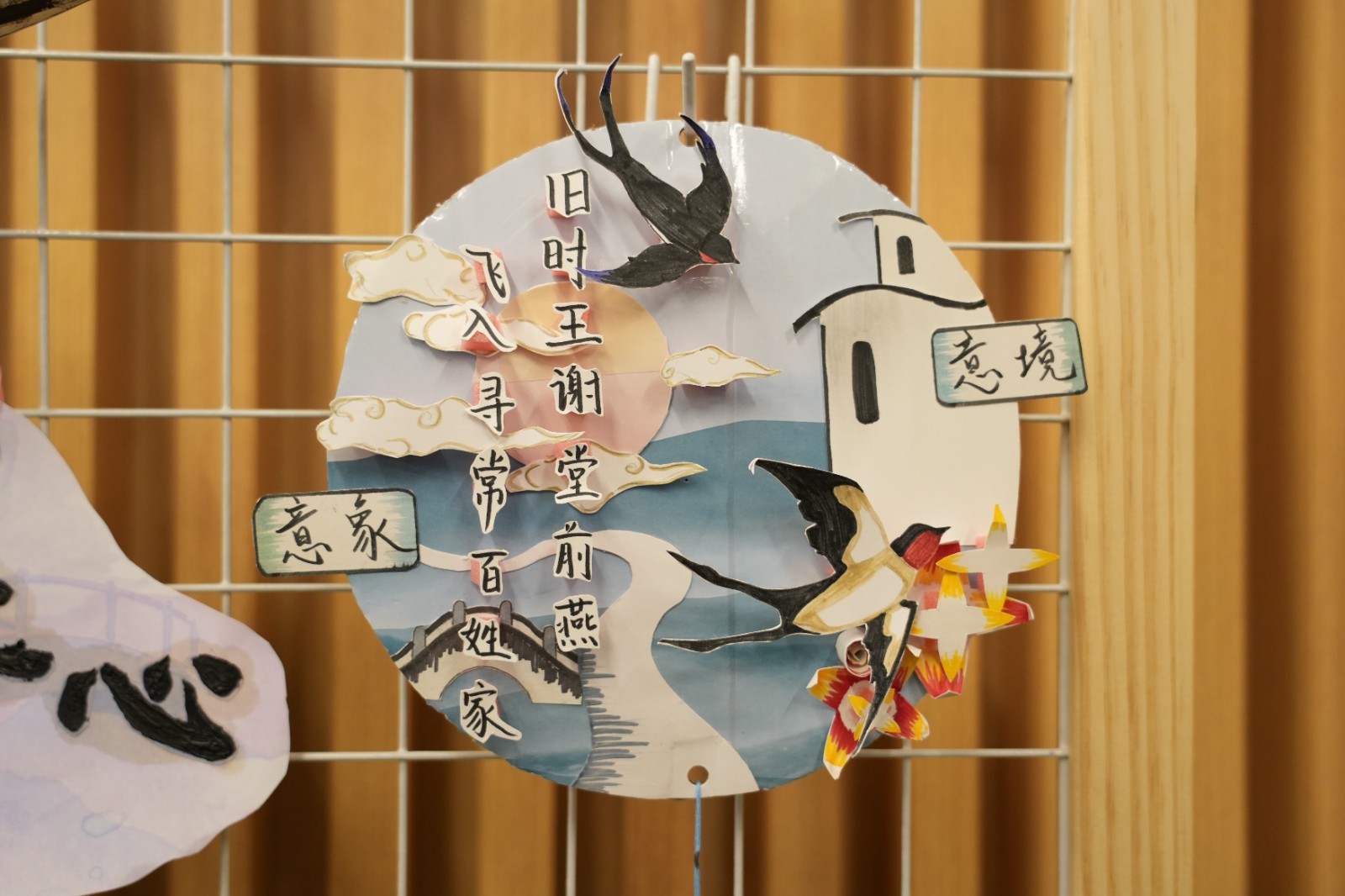
Mubarak, a Year 7 student who won the runner-up position in the competition, impressed the audience with his confident performance.. His love for poetry began in childhood, inspired by his mother reading poems to him. Since that time, he has enjoyed memorizing poems and creating vivid scenes in his mind.
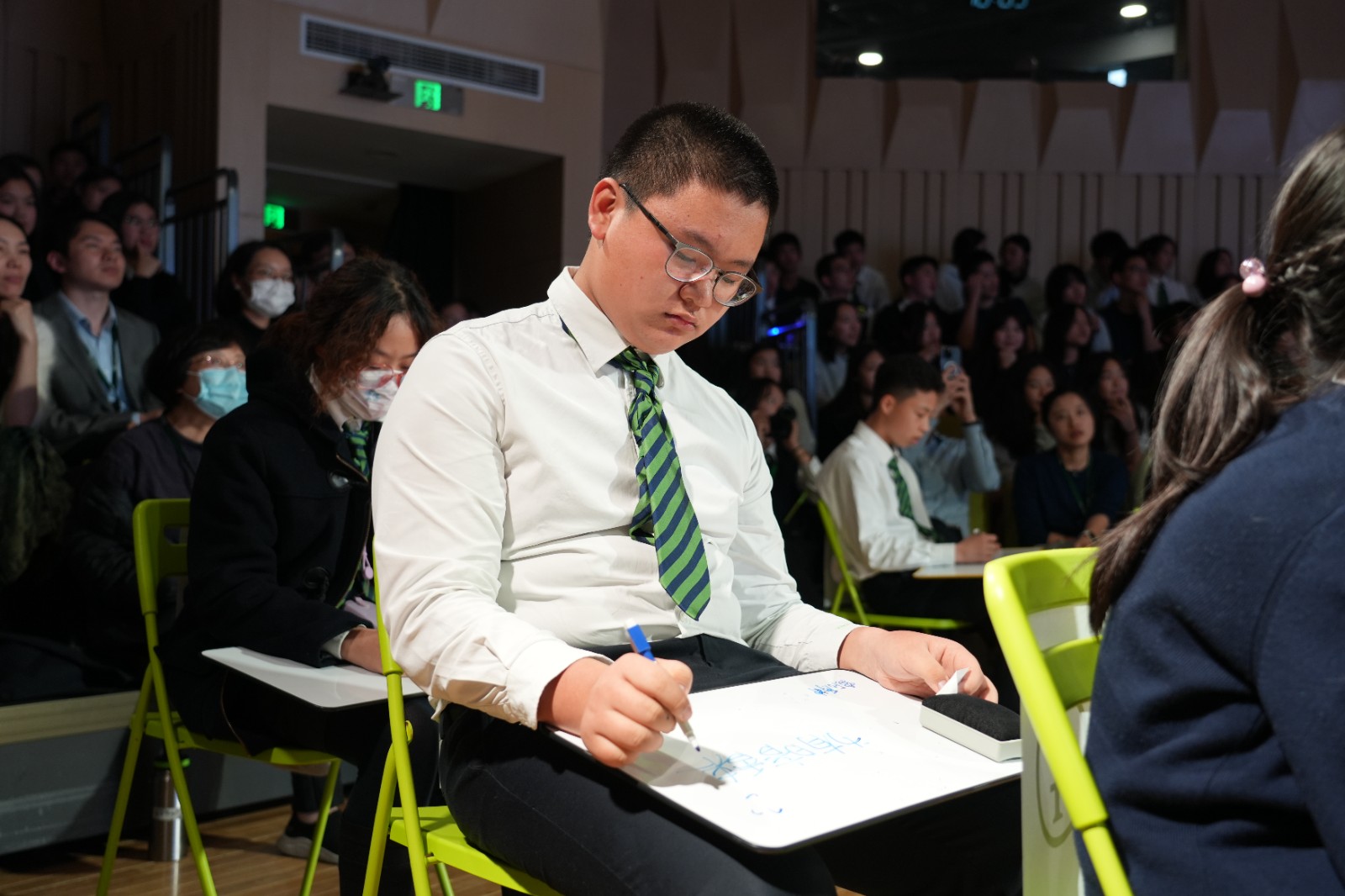
Having participated in last year's competition, Mubarak returned this year, sharing,“I prepared a notebook and copied three poems every day for a month before the competition, memorizing them. I also played poetry games with artificial intelligence (AI) daily,” he said.
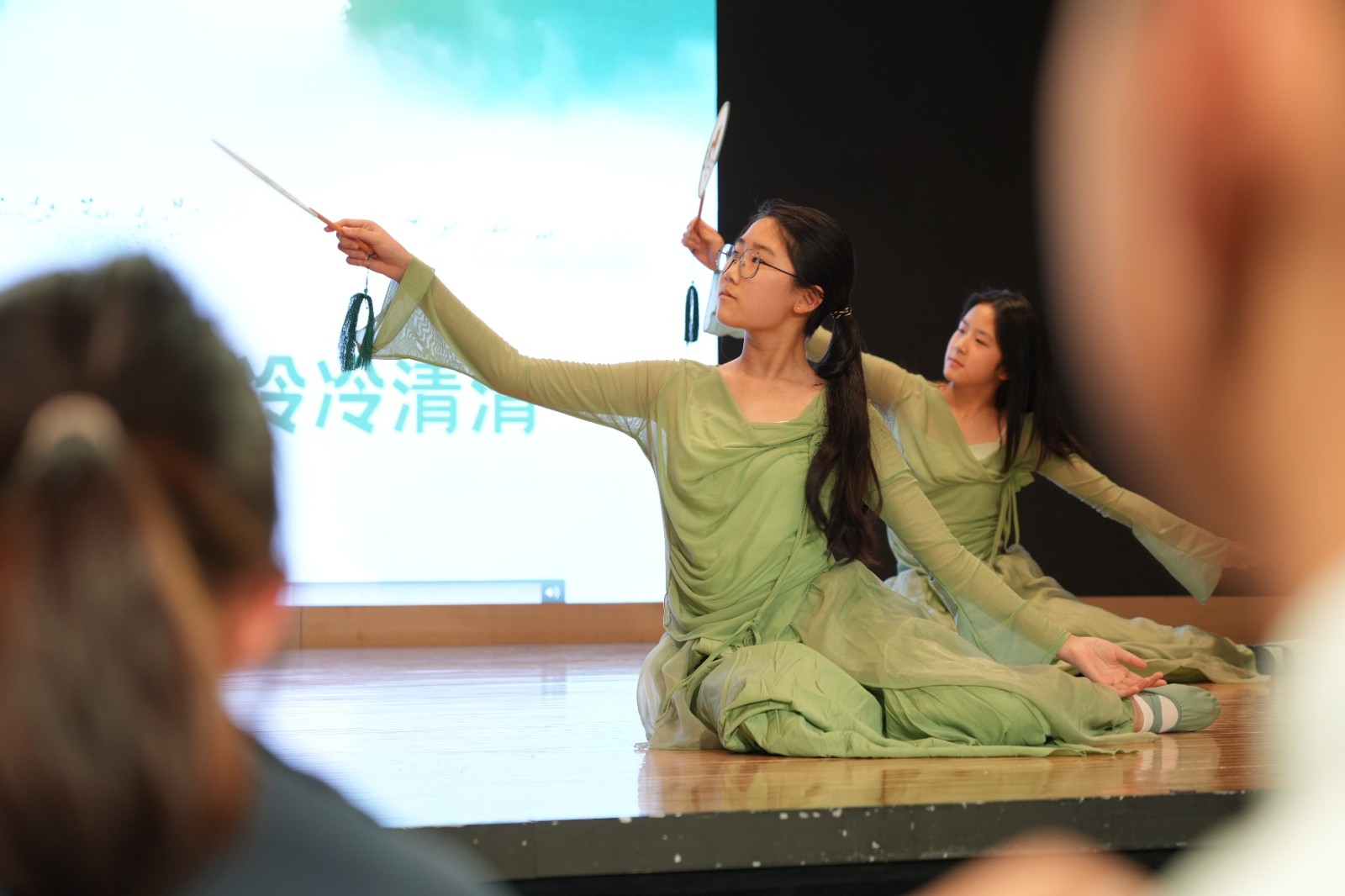
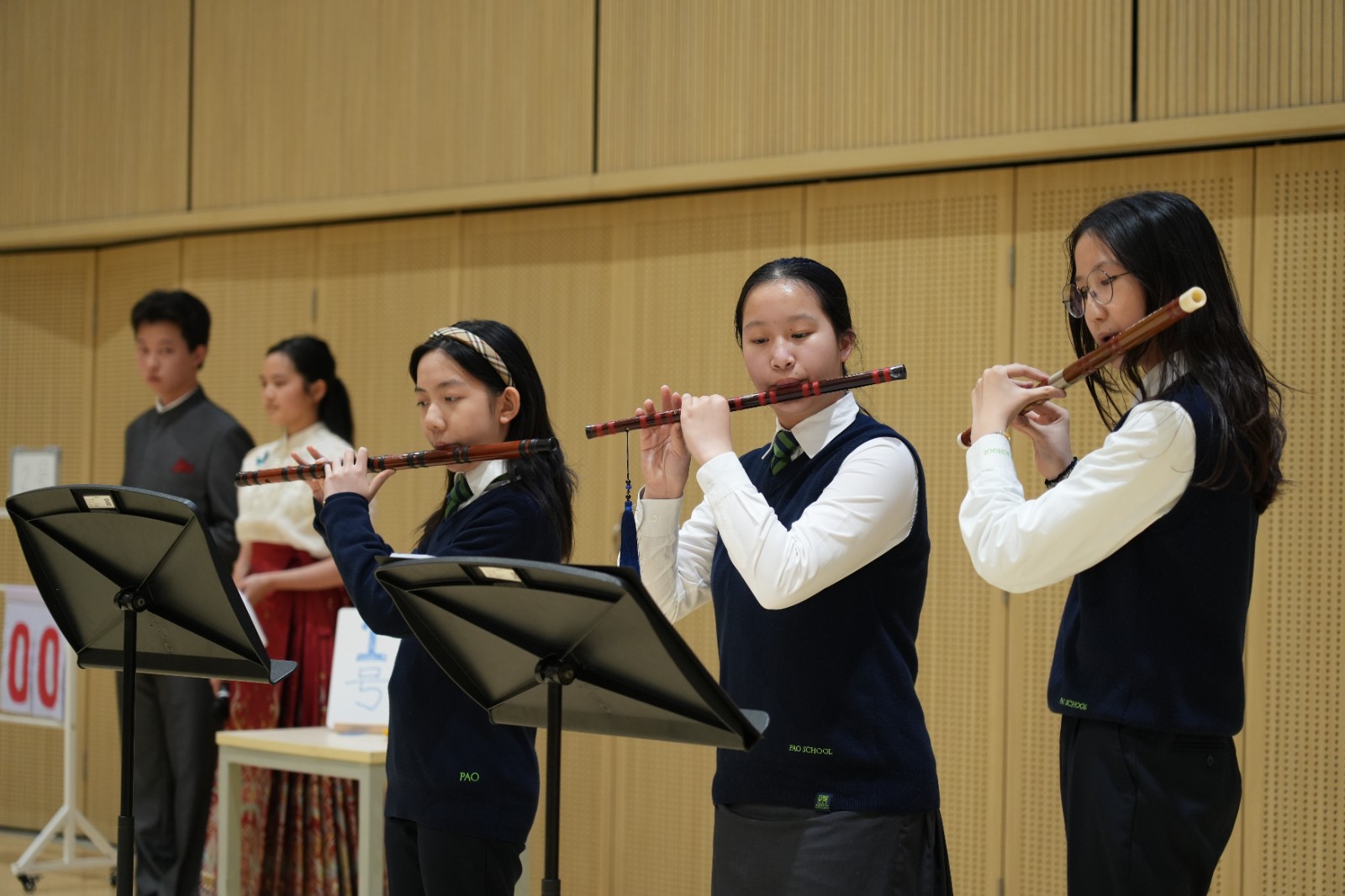
His most memorable moment was during the tense poetry game, which kept all contestants on edge. However, his thorough preparation kept him at ease.
Reflecting on his achievement, he jokingly warned future contestants: “Dear classmates, I will participate again in Year 8 next year, so you might have to wait until the year after to win the championship.”
Contestants Interview
How does it feel to compete in the Chinese Poetry Competition?
Tiger Huang (3rd place): “I had a wonderful experience. My feelings have evolved from Year 6 to Year 8. I wanted to do my best, but in the end, I realized that what was truly important was to learn more about the magnificence of poetry.”
Which three words describe your journey throughout the competition?
Bobby Hu (‘Final 8’ Contestant): “They would be expectation, hope, and disappointment. I originally thought that with some effort, I could secure the championship. My classmates had high expectations of me, so the pressure was quite significant. However, as they say, 'Fortune does not always favor the prepared.' It was certainly disappointing, but in the end, all that is past. This competition was memorable.”
What would you most like to say to your opponents?
Isabella Wei (‘Final 8’ Contestant): "I want to tell my opponents how impressive they are for standing out in their grades. Every time I saw them solve problems I couldn’t even think of, I felt more admiration for them!"
What do you find captivating about poetry? What inspired you to participate in this competition?
Purple Zhu (‘Final 8’ Contestant): “While memorizing poetry, I empathize with various stories. This resonance drives me to understand these stories and the cultural connotations behind them.”
Cory Pei (‘Final 8’ Contestant): “Poetry has a unique charm in my eyes; it is not only an art of language but also a refined expression of emotions and thoughts. Through concise and rhythmic words, poetry conveys profound emotions and philosophical ideas, eliciting resonance from readers. I participated in the competition to challenge myself and share my love for poetry.”
Audience Interview
Overall, how do you feel about the Chinese Poetry Competition?
July Wu 7A: “This poetry competition was enriching and well-organized. The contestants’ vast knowledge of poetry and its cultural depth was truly admirable. The lively atmosphere allowed me to experience the charm of poetic culture and everyone’s passion for it. I left feeling inspired to delve deeper into the study of poetry.”
What do you think is the significance of the Chinese Poetry Competition?
Ms. Sally: “The poetry competition aims to carry forward our school’s goal of passing on Chinese traditional culture. However, when it comes to learning this through Chinese poetry, both international and Chinese students sometimes find it challenging. This event awakens our awareness of the importance of traditional Chinese culture and helps students rediscover its charm.”
What was your favourite part of the Chinese Poetry Competition? Why?
Emily Tang 7A: “My favorite part of the Chinese Poetry Competition was Fei Hua Ling. It was thrilling and intense, testing contestants' poetic knowledge and quick thinking. Watching them show off their talents in the fierce competition highlighted the beauty and fun of poetry.”
Stephanie Zhou 6B: “My favorite part was Fei Hua Ling. My friends and I were also racking our brains while watching. The contestants were all very strong, and the atmosphere was tense and full of anticipation. We had no idea who would win.”
* Fei Hua Ling is a poetry game where players take turns reciting verses. Each verse must include a specific word, and if a player cannot come up with a line within a set time, they are eliminated from the game.
Which contestant most impressed you? Why?
Melissa Chen 7A: “Mubarak remained calm and demonstrated profound insights into the poems. Even when falling behind in scores, he maintained his composure, with remarkable mental resilience.”
July Wu 7A: “Annie has extensive poetry knowledge, combined with her confidence and poise, stood out brilliantly. During the final round of the competition, her quick and accurate answers reflected her dedication to studying poetry.”
Writer and Editor
Introducing the Competition
Author: Seven Chen (Y7)
Translator: Tiger Huang (Y8)
Champion and Runner-up Interview
Author and Translator: Jenny Feng (Y8)
Contestants Interview
Editor: Annie Zhuge (Y8)
Translator: Eliza Song (Y6)
Audience Interview
Editor: Eliza Song (Y6)
Translator: Tina Timray Lee (Y7)